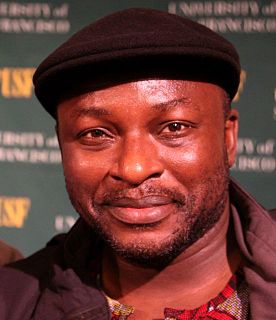Top 12 Quotes & Sayings by Uwem Akpan
Explore popular quotes and sayings by a Nigerian priest Uwem Akpan.
Last updated on April 14, 2025.
Though people are more important than money, I'm not convinced these large sums of money paid out to victims is the best. Listening to the some of the victims, I think we could have avoided a lot of this if the Church had humbly apologized to them, but we tried to bully some of them. I pray the victims are healed.






















